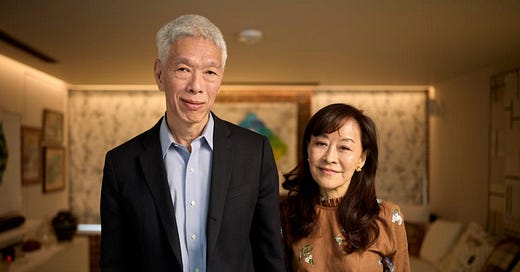Singapore, which cherishes its image as the most economically advanced state in Southeast Asia and the home of an expanding number of multinationals and media outlets fleeing a growing Chinese crackdown in Hong Kong – including the Wall Street Journal, the US’s most prestigious business and financial publication – has become the international focus of embarrassing charges of political repression after top opposition figures have fled the city-state to apply for asylum or shelter overseas.
They include Lee Hsien Yang, the second son of Singapore’s founding prime minister, who has been granted political asylum in the UK; former Reform Party Chairman and lawyer Charles Yeo Yao Hui, who fled Singapore in 2022 and has applied for UK asylum;, and Kenneth A. Jeyaretnam, the current leader of the Reform Party, who is recovering from serious illness in the UK and has been told he is in danger of being branded an “absconder” from justice under Singapore’s controversial fake news law. Pritam Singh, 48, chairman of the Workers Party, has been on trial for a week in Singapore on allegations that he gave false evidence testimony during parliamentary committee hearings in 2021 that could cost him his position as official opposition leader.
In each case, the government has said it has had ample reason for its actions and that the charges are merited. A long list of rights organizations including Human Rights Watch and Amnesty International, however, have condemned Singapore’s use of the law to curtail political activity…




